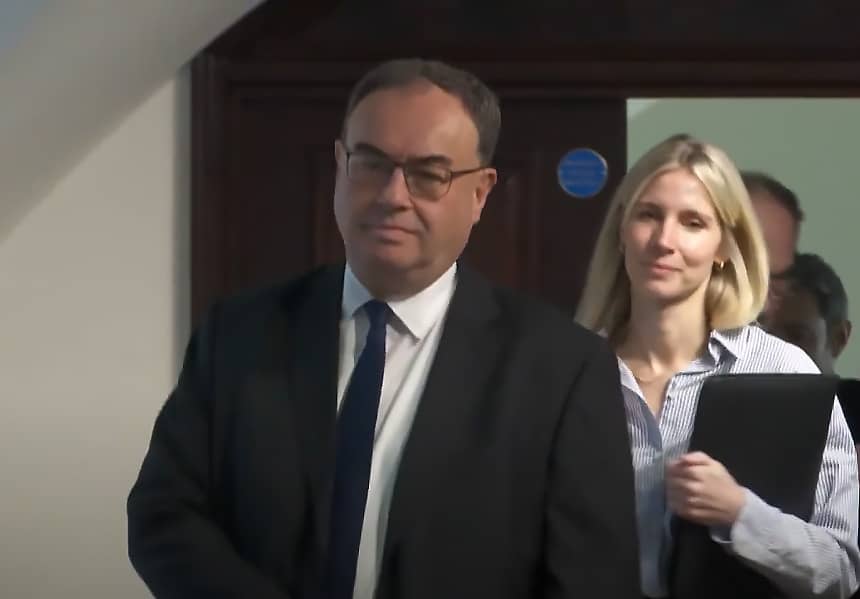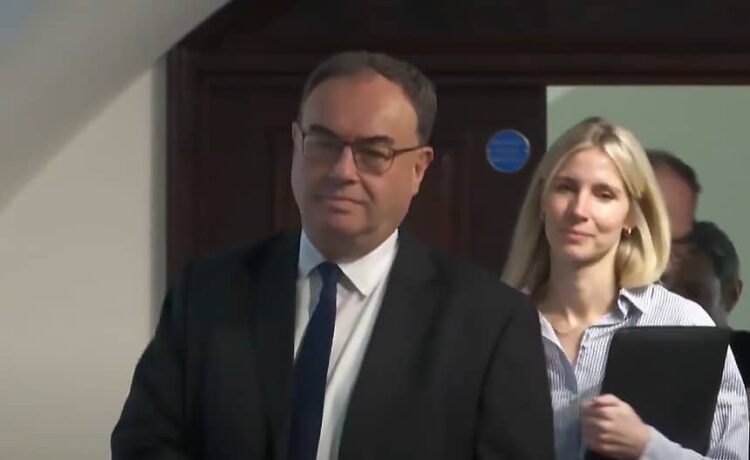
Image © Pound Sterling Live, Bank of England
The British Pound was volatile after the Bank of England’s decision to maintain interest rates at existing levels while hinting ever so cautiously that the next move would be an interest rate cut.
The Bank successfully sent the message that a lower interest rate future awaits while not letting market participants get ahead of themselves and stack up bets for an early move.
Signalling a turn in policy is always a potential banana skin moment for a central bank, particularly the Bank of England, which has struggled in the past to communicate with investors and shepherd financial markets in the desired direction.
But Governor Andrew Bailey will be pleased that he landed the message that rates would sit at current levels for an extended period and a cut would only be appropriate once it was clear inflation was settling at the 2.0% target.
Money market pricing showed investors pared expectations for the first rate cut to come as soon as May in line with the Bank’s ‘higher for longer’ mantra.
For the Pound, this is ultimately a supportive development; after all, it is one of 2024’s top-performing major currencies thanks to the paring of rate cut bets that had built up during the latter stages of 2023.
The Pound to Euro exchange rate was volatile on the day, falling into the Bank’s decision, bouncing and then paring the advance, making for a noisy session centred around 1.17.
The Pound to Dollar exchange rate was also noisy, with the Federal Reserve’s Wednesday policy decision only adding to the excitement, but ultimately the focus rests on the 1.27 level.
Track GBP with your own custom rate alerts. Set Up Here
But, the market might still be underestimating the Bank’s resolve on holding interest rates steady, suggesting scope for expectations for a May rate cut to be ‘priced out’ entirely.
“Markets are not paying attention to the change of rhetoric from the BOE,” said Ales Koutny, Head of International Rates at Vanguard. “While they were considered reluctant hikers previously and seen as dovish by the market, we believe that even when they cut, they might be reluctant cutters too.”
Should rate cut expectations be pared further, the Pound can extend its outperformance.
Lee Hardman, Senior Currency Analyst at MUFG, says policy focus has shifted from a readiness to hike rates again to assessing how long rates need to be held at the current level.
“There was no strong indication that they are likely to lower rates as soon as the UK market is expecting in May,” he says, “the GBP strengthened in response for the second consecutive MPC meeting.”
Hardman says the Pound has been benefitting at the start of this year from expectations that the BoE will lag behind the ECB and Fed when starting to lower rates.
MUFG holds a recommendation to buy the Pound against the Euro, tipping Sterling to benefit from the Bank of England lagging behind the ECB on the interest rate cutting cycle.
Above: Inflation is expected to fall to 2.0% but then rise again.
The Bank of England said inflation risks remain elevated and that it expects inflation to end the year closer to 3.0%, having gone as low as 2.0% in April.
“We expect the Bank of England to cut less than the Fed and the ECB in 2024 and less than the market now anticipates. If this plays out, it is likely that sterling will perform well. Our sterling forecasts are under revision,” says Georgette Boele, Senior FX Strategist at ABN AMRO.
“On the whole, the BoE decision was slightly hawkish relative to expectations heading into the release. Thus, markets have pared near-term rate cuts bets and, by extension, lifted sterling higher. That said, the pivot towards looser policy going forward is in,” says Justin McQueen, a market analyst at Reuters.
More broadly, the Pound is likely to remain supported as long as the Federal Reserve and Bank of England resist rate cuts; what the past two years have shown is that when these two central banks are in a ‘hawkish’ impulse, the Pound tends to benefit.
The Bank of England will only likely become more ‘dovish’ once the Fed starts cutting, meaning the U.S. central bank is an important element of the GBP outlook.


















